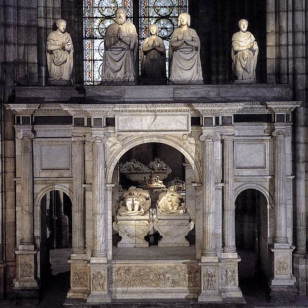What exactly is cremation? It is the act of reducing a dead body to ashes or consuming it with fire. The ancient Greeks were known to practice this method of disposing of their dead. People in the Near East who also carried out this practice on dead human flesh include the Hittites and the Mitanni.
Some Christians are against cremation because they believe that the burning of a dead human is a pagan ritual that disrespects the body God gave to each person. Although Biblestudy.org respects the consciences of fellow believers regarding this issue, it offers this short study on cremation as something to consider.
Scripture does not contain any direct commands from God regarding which methods he accepts, (e.g. burial) or which methods he rejects in regard to disposing of a dead body. It does give, however, some examples of the dead being burned and a principle to use to arrive at a conclusion.

Traditions
The practice of the Biblical patriarchs was not to consume a body with fire but rather bury it. Abraham purchased a burial place for his wife Sarah, which later would be used for his own body as well as those of Isaac, Rebekah, Leah and Jacob (Genesis 23, 49:31). Moses was buried in the ground (Deuteronomy 34:5 - 6).
Cremation was not practiced on both Lazarus and Jesus' body, as they were placed in the ground upon death (John 11, 12:17, Matthew 27, Mark 15, etc.). The Bible, however, does give a few examples where bodies were burned after death. The children of Israel convicted a man name Achan of a grievous sin against God. Their punishment was to stone him to death then burn his body completely (Joshua 7).
After the Philistines killed King Saul and his sons in battle, they took their bodies and nailed them to a city wall. Valiant men of Jabeshgilead heard what happened, retrieved the bodies off the wall and then burned them like a cremation (1Samuel 31:11 - 12). King Josiah of Israel, after executing several pagan priests who served at the altars of false gods, had their bodies burned or cremated (2Kings 23:19 - 20). This act was a fulfillment of a prophecy (1Kings 13:2).
The Apostle Paul offers us a principle we can use regarding cremation. Rather than it being dishonorable to burn one's body after death, there are circumstances which make the act highly self-sacrificing (1Corinthians 13:3).
God does not expressly forbid the disposal of dead bodies using fire. The Bible examples of burial reflect what was the accepted cultural practice and tradition of disposing bodies at the time of a person's death and are not a commanded practice. How a person's fleshly existence is handled after they die does not affect their salvation or God's ability to resurrect them (see Ezekiel 37:1 - 14).
One last consideration
Here is one last thing to consider in regard to how to dispose of a body. The costs associated with cremation are usually far less expensive than being buried (coffin, burial plot, etc.). This is especially true when a person's ashes are either scattered or placed in an urn that is not interred. The money saved would be of better use to those who are alive (family members, charities) than the dead.
Each Christian must ultimately decide how their body, through cremation or burial, should be handled upon their death. It is never wrong to ask God, in sincere prayer, to guide you to fulfill his will in this last act of your life.